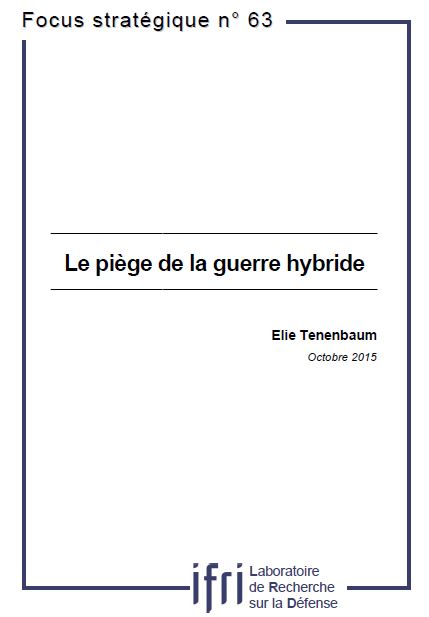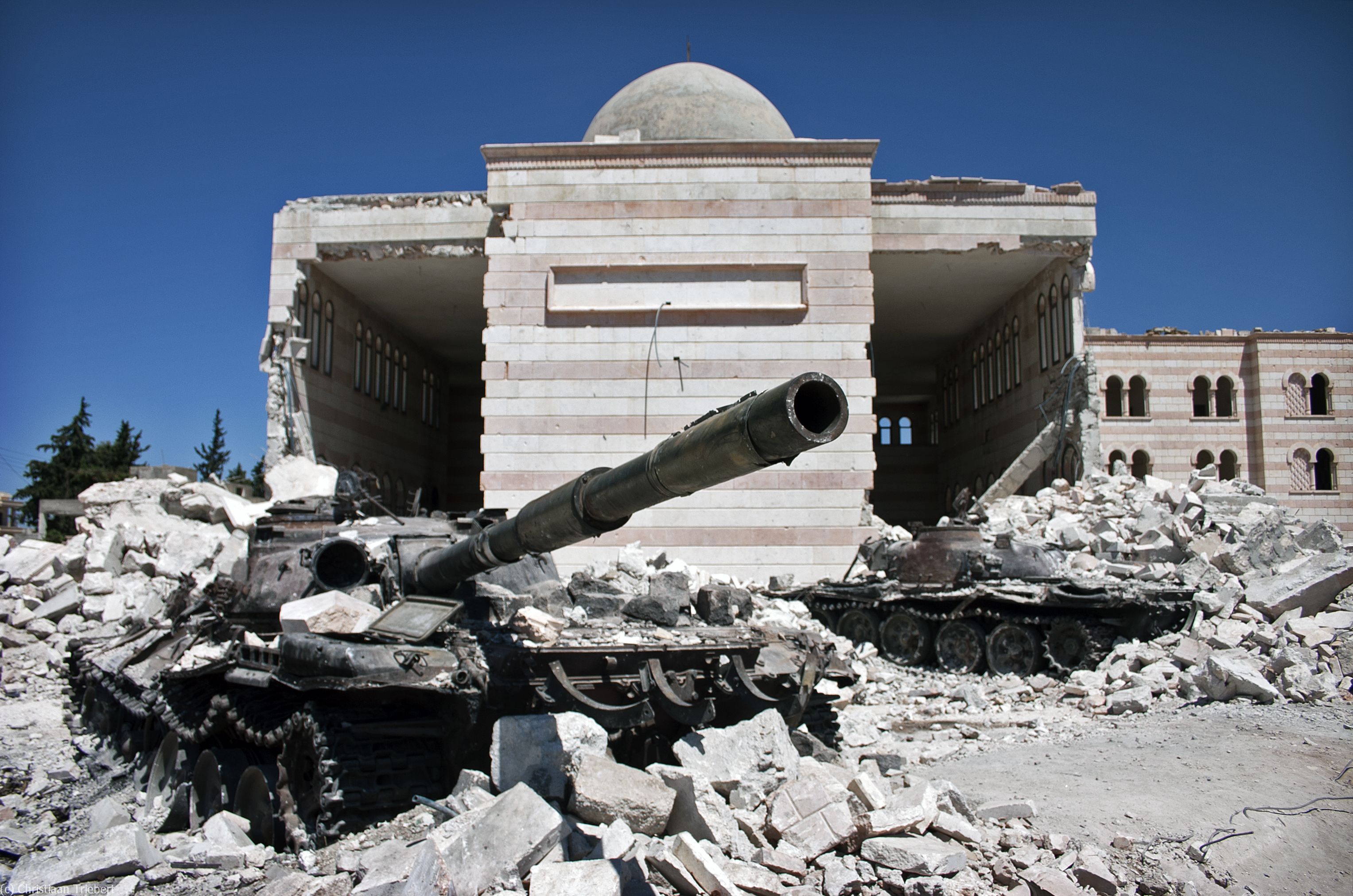Le piège de la guerre hybride

Since its inception in the mid-2000s, hybrid warfare has become a fashionable concept among Western strategic community. However, it lacks a clear definition and, if loosely used, could lead to possibly dangerous misunderstandings.

At the political and strategic level, the hybrid notion reflects the porosity between irregular and regular warfare. At the operational level, it describes sophisticated forms of maneuver combining dispersion and concentration. At the tactical and capability level, it portrays the lethal mix of modern conventional equipment traditionally associated with regular warfare, and the use of non-linear tactics, typical of irregular warfare. This innovative mode of fighting is now showing its successes on a wide variety of theatres and with belligerents as different as Russia in Ukraine, the Islamic State in Iraq and Syria, or the drug cartels in Mexico. One should not, however, be blinded by the hybrid branding for only differentiated strategies will allow to counter such a wide variety of threats.
This content is available in French: Le piège de la guerre hybride
Related centers and programs
Discover our other research centers and programsFind out more
Discover all our analysesThe Franco-German Brigade and the Revival of European Defense
One thing has been clear since Donald Trump's return to the White House: the very existence of the European unification project is threatened. Unless it develops a sovereign defense policy to counter the war in Ukraine and the weakening of American security guarantees, the European Union will continue to see its internal cohesion and external attractiveness wane.
Taking the Pulse: Can Europeans Build Their Independent Extended Nuclear Deterrent?
Confronted with a U.S. disengagement and the Russian threat, Europeans are reconsidering their stance on nuclear deterrence. Given the capabilities of the French and British arsenals, can Europe develop an independent nuclear deterrent?

RAMSES 2024. A World to Be Remade
For its 42nd edition, RAMSES 2024 identifies three major challenges for 2024.
A Transatlantic Defense Industrial Base? Two Contrasting Views
The evolving landscape of global defense cooperation has brought the transatlantic relationship between the United States (US) and Europe into sharp focus. As geopolitical tensions rise and the threat environment becomes more complex, the question of how Europe can best ensure its security while navigating its relationship with the United States has become paramount. This double feature report offers two contrasting views on the dynamics of US-Europe defense industrial relations, highlighting the challenges and opportunities that lie ahead for both parties.










